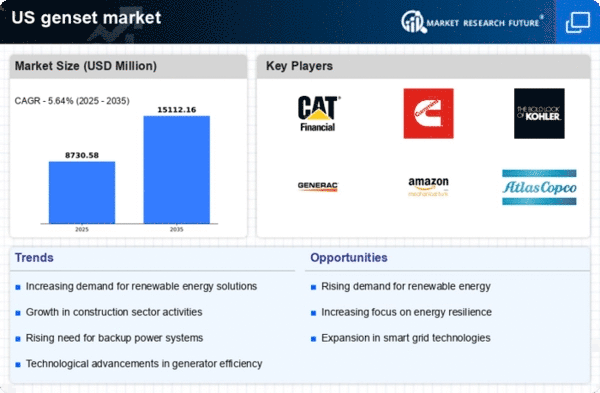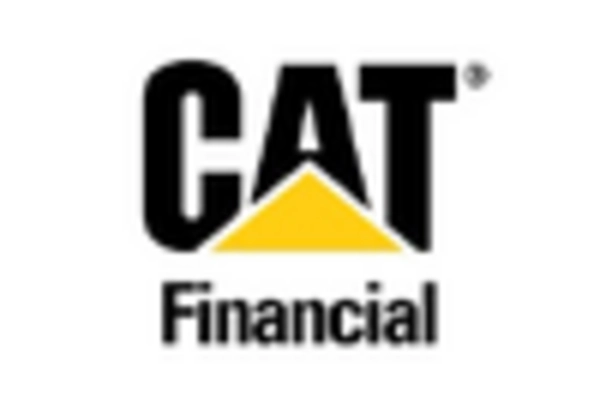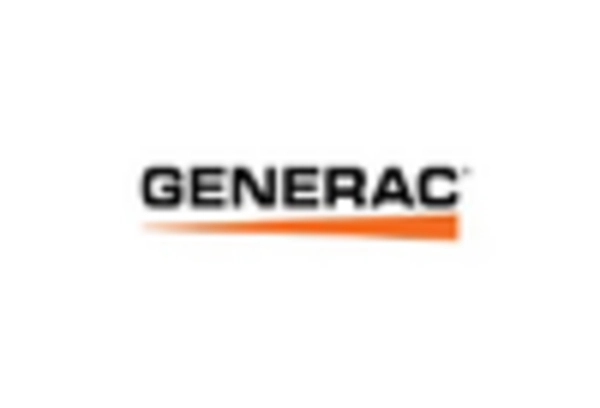Rising Demand for Backup Power Solutions
The increasing frequency of power outages in the US has led to a heightened demand for backup power solutions, significantly impacting the genset market. As businesses and households seek to ensure uninterrupted power supply, the market for generators is projected to grow. According to recent data, the market is expected to expand at a CAGR of approximately 5.5% over the next five years. This trend is particularly evident in sectors such as healthcare and data centers, where reliable power is critical. The genset market is thus witnessing a surge in sales, driven by the necessity for dependable energy sources during emergencies.
Growing Industrialization and Urbanization
The rapid pace of industrialization and urbanization in the US is a significant driver for the genset market. As urban areas expand and industries grow, the demand for reliable power sources becomes increasingly critical. The industrial sector is projected to contribute approximately $1 trillion to the economy by 2027, necessitating robust power solutions. This trend is particularly evident in manufacturing and logistics, where consistent power supply is essential for operations. The genset market is thus positioned to capitalize on this growth, providing essential power solutions to support the evolving landscape of urban and industrial development.
Technological Innovations in Generator Design
Technological innovations in generator design are reshaping the genset market. Advances in engine efficiency, noise reduction, and emissions control are making modern generators more appealing to consumers. The introduction of smart generators, which can be monitored and controlled remotely, is also gaining traction. These innovations not only enhance performance but also align with the growing consumer preference for environmentally friendly products. The genset market is likely to benefit from these advancements, as they cater to a more informed and environmentally conscious customer base, potentially increasing market share.
Increased Adoption of Renewable Energy Sources
The growing emphasis on renewable energy sources in the US is influencing the genset market. As more businesses and households invest in solar and wind energy, the need for backup generators to complement these systems is becoming apparent. The integration of gensets with renewable energy solutions is expected to enhance energy reliability and efficiency. Data suggests that the renewable energy sector is projected to grow by 20% annually, which could lead to a corresponding increase in the demand for hybrid genset solutions. This trend indicates a shift in the genset market towards more sustainable and integrated power solutions.
Expansion of Construction and Infrastructure Projects
The ongoing expansion of construction and infrastructure projects across the US is a key driver for the genset market. With significant investments in public and private infrastructure, the demand for temporary power solutions is on the rise. The construction sector alone is projected to reach a value of $1.5 trillion by 2026, creating a substantial need for generators to support various operations. This trend is further fueled by the increasing complexity of construction projects, which often require reliable power sources for tools and equipment. Consequently, the genset market is poised for growth as it caters to the evolving needs of the construction sector.

















